#Samuel A. Marx
Explore tagged Tumblr posts
Text
Crossroads Room, Dearborn Station, Chicago
A lost Fred Harvey Restaurant in Chicago, designed by Samuel A. Marx, with murals by Edgar Miller

Fred Harvey Crossroads Room, Dearborn Station, Chicago, c. 1940, architect Samuel A. Marx. Source: Chicago History Museum
I only learned about this long-gone but exceptional moderne restaurant interior a couple of days ago, while perusing a lengthy post on the Forgotten Chicago site.
Another mostly forgotten Art Deco landmark is seen above by noted Chicago architect and art collector Samuel Marx for the Fred Harvey Crossroads Restaurant at Dearborn Station. Perhaps best known locally for the original incarnation of the legendary Pump Room at the Ambassador East Hotel (now PUBLIC Chicago) in 1938, this Marx commission included a restaurant seating 102, a 50-seat cocktail lounge, and a 31-person lunchroom. Edgar Miller, Chicago’s great and recently rediscovered artist, was commissioned for the murals that commemorated both old Chicago and the southwestern routes served by the Santa Fe Railroad. Patrick Steffes, Chicago’s Million Vacant Lots, and Other Recent Research Finds, Forgotten Chicago, May 31, 2014

Dearborn Station. Designed by Cyrus L. W. Eidlitz, the station opened in 1885 at 47 West Polk Street, Chicago. Source: Dearborn Homes website

An earlier Fred Harvey Restaurant in Dearborn Station, 1899

Cover and contents page of Architectural Record, Vol. 88 No. 1, July 1940. PDF of entire issue is available from Architectural Record Archives here.
The scans below are from pp. 40-43 of this issue:




Text of the article:




Description on back of postcard

Another view of the restaurant. Source: Chicago History Museum

A view of the bar. Source: Chicago History Museum
The Crossroads Room featured curving walls in each of its three rooms, chrome fixtures with indirect lighting, and a serpentine bar. Marx specially designed all the furniture. He used a wide-ranging color scheme throughout the project, including "brilliant green, reddish brown, deep chocolate brown, pigskin, Indian red, black, and white," colors that were seen in much of Santa Fe's advertising through the years. Other distinctive decorating touches included Indian and roadrunner motifs and rather bizarre round neo-Baroque wall cases containing what appear from photographs to be cactus sculptures. These unique features would no doubt have reminded patrons of the exotic destinations of the Santa Fe Railroad in the American Southwest. Although Fred Harvey was best known for promoting travel to the West and Southwest, the new spaces were also full of depictions of the history and early life of Chicago. For the 183-seat Crossroads restaurant, Miller created a large wall mural depicting early nineteenth-century pioneer life in Chicago, including a cntral rendering of Indians, fur traders, and Fort Dearborn. For the 50-seat cocktail lounge, adjacent to the main entrance, Miller illustrated early Chicago settlers along with various livestock.... Patrick Steffes, "Crossroads Room," in Robert Brueggman, editor, Art Deco Chicago: Designing Modern America. Chicago Art Deco Society, 2018, pp. 313-315.

Enlarged view of floor plan, from p. 41 illustration above

Crossroads Room menu, Saturday, January 14, 1950 (ebay)

Crossroads Room, matchbook cover (ebay)

Anemo-Light advertisement; this type of anemostat indirect lighting was used in the Crossroads Room.

Portrait of architect Samuel Marx at his desk in his office in Chicago, Illinois, February 15, 1941. Source: Chicago History Museum

Art Institute of Chicago, works by Samuel A. Marx
Sources:
Andrew Raimist, Architectural Ruminations
Robert Brueggman, editor, Art Deco Chicago: Designing Modern America. Chicago Art Deco Society, 2018.
Chicago History Museum, images of buildings designed by Samuel a. Marx
Liz O'Brien, Ultramodern: Samuel Marx, Architect, Designer, Art Collector. Pointed Leaf Press, 2012
Old Chicago Station Gets New Restaurant, Architectural Record, Vol. 88 No. 1, July 1940, pp. 40-43
The Pump Room, Architectural Forum, July 1940, pp. 21-24
Samuel Abraham Marx, Wikipedia
Samuel A. Marx in the Art Institute of Chicago collections
Patrick Steffes, Chicago’s Million Vacant Lots, and Other Recent Research Finds, Forgotten Chicago, May 31, 2014
#Fred Harvey#Crossroads Room#Chicago#architecture#buildings#art deco#moderne#Samuel A. Marx#Dearborn Station#restaurant#demolished#Edgar Miller#mural
16 notes
·
View notes
Text







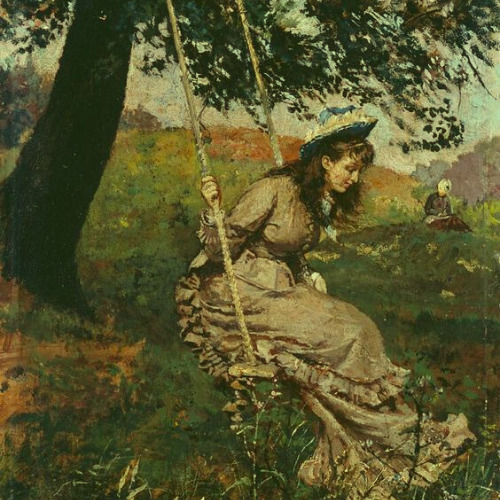

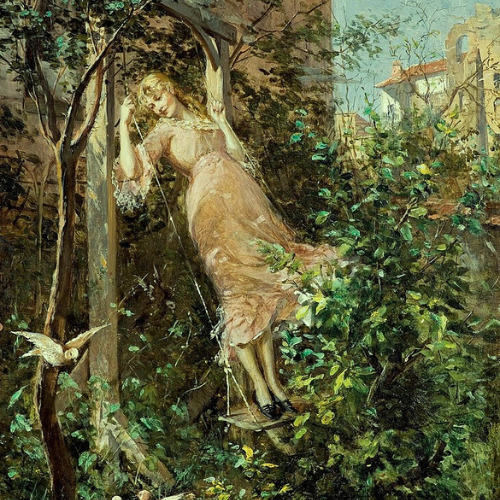



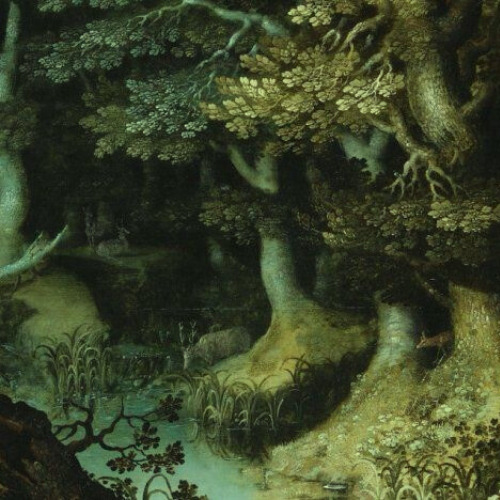






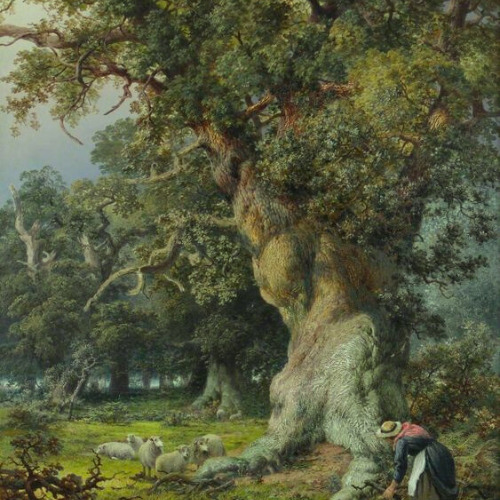
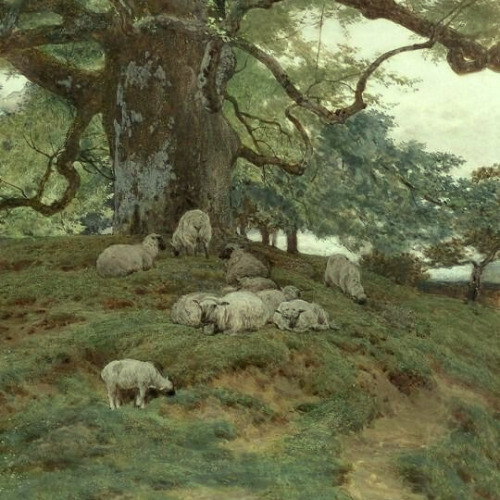






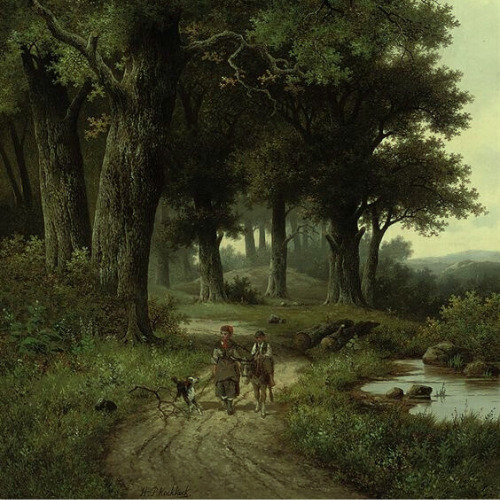

art aesthetics: cottagecore
#artist is francesc masriera#artist is samuel colman#artist is karel purkyne#artist is jan frederik pieter portielje#artist is giuseppe camino#artist is alfred petit#artist is gelhay edouard#unknown artist#artist is albert f laurens#artist is paul mewart#artist is kinuko y craft#artist is peter gardiner#artist is arnold bocklin#artist is cirosata bolarc#artist is hermann heinrich#artist is ludwig sckell#artist is carl ebert#artist is robert zund#artist is robert payton reid#artist is helen allingham#artist is frederick henry henshaw#artist is john dawson watson#artist is gustav marx#artist is ernest walbourn#artist is ivan nikoaevich kramskoy#artist is henry john yeend king#artist is edith martineau#artist is peter ludgwig kuhnen#artist is hendrik pieter koekkeok#artist is emil jakob schindler
642 notes
·
View notes
Text
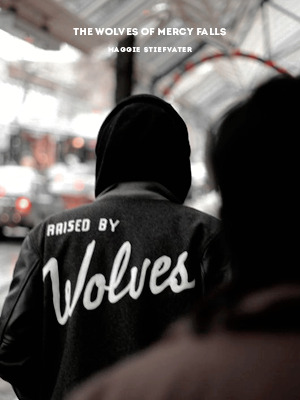







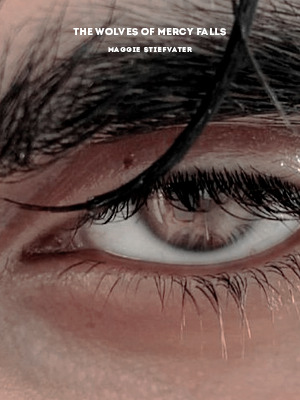

“It is possible to be in love with you just because of who you are.”
#twomfedit#twomf#the wolves of mercy falls#grace brisbane#samuel roth#sam roth#isabel culpeper#cole st. clair#olivia marx#rachel vega#shelby#maggie stiefvater#mine
65 notes
·
View notes
Text
Dans chaque vieux il y a un jeune qui se demande ce qu'il s'est passé.
Cité dans l'échappée de Jean-François Dupont, phrase attribuée à Groucho Marx mais aussi à Terry Pratchett
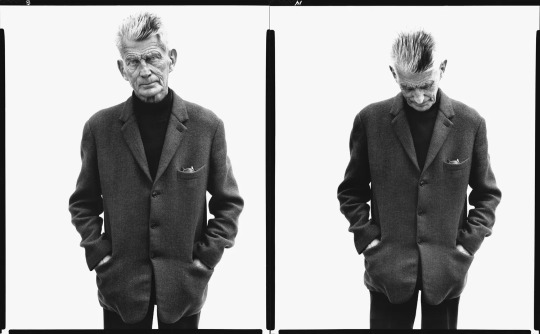
Samuel Beckett photographié par Richard Avedon en 1979, il a 73 ans.
#citation#jean-françois dupont#groucho marx#terry pratchett#les années#vieillesse#livres#richard avedon#samuel beckett
2 notes
·
View notes
Text
10 maggio … ricordiamo …
10 maggio … ricordiamo … #semprevivineiricordi #nomidaricordare #personaggiimportanti #perfettamentechic
2022: María Duval, nome d’arte di María Mogilesky, attrice argentina. Sposò con José Grosman, e poco dopo si ritirò dallo spettacolo. (n.1926) 2021: Neil Connery, Neil Niren Connery, attore scozzese. Fratello di Sean Connery. (n. 1938) 2019: Maurizio Ancidoni è stato un attore italiano, attivo come attore bambino tra il 1969 e il 1973. Fratello dei doppiatori Sandro Acerbo e Rossella Acerbo, ha…
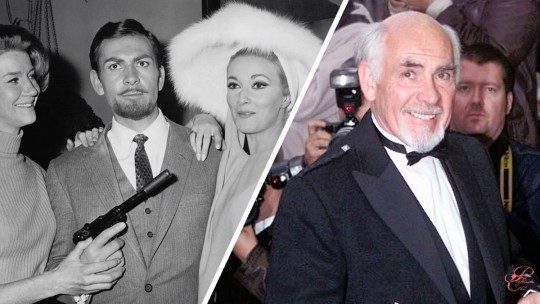
View On WordPress
#10 maggio#Albert Geoffrey Bayldon#Alfonso Sorrentino#Craig Stevens#Fabrizio Casadio#Geoffrey Bayldon#Georg Lüddeckens#Georg Richter#Ita Rina#Joan Crawford#Lucile Browne#María Duval#María Mogilesky#Mari Blanchard#Mario Da Vinci#Maurizio Ancidoni#morti 10 maggio#Ricordando ..#Samuel Marx#Simon Marx#Susan Oliver#Yves Robert
0 notes
Text
in honor of that anon who said jews have done nothing for the world, here’s a non exhaustive list of things we’ve done for the world:
arts, fashion, and lifestyle:
jeans - levi strauss
modern bras - ida rosenthal
sewing machines - isaac merritt singer
modern film industry - carl laemmle (universal pictures), adolph zukor (paramount pictures), william fox (fox film forporation), louis b. mayer (mgm - metro-goldwyn-mayer), harry, sam, albert, and jack warners (warner bros.), steven spielberg, mel brooks, marx brothers
operetta - jacques offenbach
comic books - stan lee
graphic novels - will eisner
teddy bears - morris and rose michtom
influential musicians - irving berlin, stephen sondheim, benny goodman, george gershwin, paul simon, itzhak perlman, leonard bernstein, bob dylan, leonard cohen
artists - mark rothko
actors - elizabeth taylor, jerry lewis, barbara streisand
comedians - lenny bruce, joan rivers, jerry seinfeld
authors - judy blume, tony kushner, allen ginsberg, walter mosley
culture:
esperanto - ludwik lazar zamenhof
feminism - betty friedan, gloria steinem, ruth bader ginsberg
queer and trans rights - larry kramer, harvey milk, leslie feinberg, abby stein, kate bornstein, frank kameny, judith butler
international women's day - clara zetkin
principles of journalizm, statue of liberty, and pulitzer prize - joseph pulitzer
"the new colossus" - emma lazarus
universal declaration of human rights - rene samuel cassin
holocaust remembrance and human rights activism - elie wiesel
workers rights - louis brandeis, rose schneiderman
public health care, women's rights, and children's rights - lillian wald
racial equity - rabbi abraham joshua heschel, julius rosenwald, andrew goodman, michael schwerner
political theory - hannah arendt
disability rights - judith heumann
black lives matter slogan and movement - alicia garza
#metoo movement - jodi kantor
institute of sexology - magnus hirschfeld
technology:
word processing computers - evelyn berezin
facebook - mark zuckerberg
console video game system - ralph henry baer
cell phones - amos edward joel jr., martin cooper
3d - leonard lipton
telephone - philipp reis
fax machines - arthur korn
microphone - emile berliner
gramophone - emile berliner
television - boris rosing
barcodes - norman joseph woodland and bernard silver
secret communication system, which is the foundation of the technology used for wifi - hedy lamarr
three laws of robotics - isaac asimov
cybernetics - norbert wiener
helicopters - emile berliner
BASIC (programming language) - john george kemeny
google - sergey mikhaylovich brin and larry page
VCR - jerome lemelson
fax machine - jerome lemelson
telegraph - samuel finley breese morse
morse code - samuel finley breese morse
bulletproof glass - edouard benedictus
electric motor and electroplating - boris semyonovich jacobi
nuclear powered submarine - hyman george rickover
the internet - paul baran
icq instant messenger - arik vardi, yair goldfinger,, sefi vigiser, amnon amir
color photography - leopold godowsky and leopold mannes
world's first computer - herman goldstine
modern computer architecture - john von neumann
bittorrent - bram cohen
voip internet telephony - alon cohen
data archiving - phil katz, eugene roshal, abraham lempel, jacob ziv
nemeth code - abraham nemeth
holography - dennis gabor
laser - theodor maiman
instant photo sharing online - philippe kahn
first automobile - siegfried samuel marcus
electrical maglev road - boris petrovich weinberg
drip irrigation - simcha blass
ballpoint pen and automatic gearbox - laszlo biro
photo booth - anatol marco josepho
medicine:
pacemakers and defibrillators - louise robinovitch
defibrillators - bernard lown
anti-plague and anti-cholera vaccines - vladimir aronovich khavkin
polio vaccine - jonas salk
test for diagnosis of syphilis - august paul von wasserman
test for typhoid fever - ferdinand widal
penicillin - ernst boris chain
pregnancy test - barnhard zondek
antiretroviral drug to treat aids and fight rejection in organ transplants - gertrude elion
discovery of hepatitis c virus - harvey alter
chemotherapy - paul ehrlich
discovery of prions - stanley prusiner
psychoanalysis - sigmund freud
rubber condoms - julius fromm
birth control pill - gregory goodwin pincus
asorbic acid (vitamin c) - tadeusz reichstein
blood groups and rh blood factor - karl landsteiner
acyclovir (treatment for infections caused by herpes virus) - gertrude elion
vitamins - caismir funk
technique for measuring blood insulin levils - rosalyn sussman yalow
antigen for hepatitus - baruch samuel blumberg
a bone fusion technique - gavriil abramovich ilizarov
homeopathy - christian friedrich samuel hahnemann
aspirin - arthur ernst eichengrun
science:
theory of relativity - albert einstein
theory of the electromagnetic field - james maxwell
quantum mechanics - max born, gustav ludwig hertz
quantum theory of gravity - matvei bronstein
microbiology - ferdinand julius cohn
neuropsychology - alexander romanovich luria
counters for x-rays and gamma rays - robert hofstadter
genetic engineering - paul berg
discovery of the antiproton - emilio gino segre
discovery of cosmic microwave background radiation - arno allan penzias
discovery of the accelerating expansion of the universe - adam riess and saul merlmutter
discovery that black hole formation is a robust prediction of the general theory of relativity - roger penrose
discovery of a supermassive compact object at the center of the milky way - andrea ghez
modern cosmology and the big bang theory - alexander alexandrovich friedmann
stainless steel - hans goldschmidt
gas powered vehicles
interferometer - albert abraham michelson
discovery of the source of energy production in stars - hans albrecht bethe
proved poincare conjecture - grigori yakovlevich perelman
biochemistry - otto fritz meyerhof
electron-positron collider - bruno touschek
3K notes
·
View notes
Text
Somehow, I don't think I've ever truly taken the time to appreciate just how sort of... ridiculous Radovid's introduction scene is?
Not Radovid himself, he's adorable!
But it does make you wonder...
How often does King Vizimir just... randomly yell his name at the top of his lungs like that to get his attention, and then, just... basically lets him carry on, because turns out he didn't want anything from him?
He's like: "Nah, don't worry about it, 'bro! I just felt like loudly shouting your name in a crowd rather than simply telling Dijkstra that I'd decided you'd be leading the 'Princess Ciri finding efforts' from now on! Just reminding him of how adorable you are, you know? Look Dijkstra? Isn't he adorable? That's my baby brother with his little bottle making cute little "whoo! " sounds right there..."


Because, you know, once Radovid realises that his brother is calling him, he makes literally no effort to go see him, either!
I know he's playing dumb/drunk, but still!
"What's that?! Oh, okay! It's just Vizimir trying to locate me. Whoo!"
WHAT *IS* THAT?!
It's like a parent at a children's party suddenly going "SAMUEL!".

Child: *Stops playing to look at their parent.* "What?!"

Parent: "Oh, no worry, honey! I just wanted to make sure you hadn't run off, drowned in the pool, got kidnapped or something! But I see you've got your grape juice bottle and are having fun with your friends, everything's fine! Go on!" Child: "Yay!"

I mean, you might reasonably expect King Vizimir to shout Radovid's name in a crowd like that to get his attention so he can motion to him to come over, and then introduce him to someone he's never met before.
Which, on a meta level, is technically what he's doing: introducing Radovid to the audience.
But in Universe?!?!
It's Dijkstra. Dijkstra knows who the crown prince of Redania is, Vizimir! You could've just told him, and he'd have gotten it! No need to get all dramatic about it!
TL;DR: King Vizimir is a ridiculous drama queen that loves showing off his pet baby brother every chance he gets!
And Radovid's gotten so used to it by now, that he's totally stopped attempting to figure out what his big brother wants when he calls him.
What if it's not just Vizimir, though, and Radovid just has that reputation for constantly getting himself into trouble if left unsupervised for too long.
So, people at court have a habit of periodically shouting his name; just to get him to manifest himself in large crowds, or crawl out of whatever hole or tight space he's crammed himself into, make eye contact, and locate him.



Therefore, in my new personal headcanon, there's now a scene at the Thanedd Ball that pretty much goes:
- Dijkstra: "RADOVID!" - Philippa: *walking over to him* "I think I saw him leave earlier with his royal security detail. He's probably sniffed out the bard's scent..." - Dijkstra: "Oh, good! You made sure those guards understood their assignment, right?" Philippa: "Of course!"
***Meanwhile, in the nearby woods.***
- Captain of the guards: "RADOVID!" - Other guard: "It's no use sir, we've lost him! " - Captain: "Gods damnit! Dijkstra won't be pleased..." - Radovid: *having already put plenty of distance between them, on his way to go see Jaskier* "Whoo!"
It's a good thing Philippa wasn't with them, or what might have happened would have been something closer to:
- Philippa: "Don't worry! I've got this!" *in whispering tones* "Sabrina was right. Valdo Marx's compositions are far superior to Jask -" - Radovid: *instantly traveling across space and time to appear right before her* "Valdo Marx has NOTHING on Jaskier! His sublime ethereal melodies, and the poetry of his lyrics, elevate the bardic arts to -" - Philippa: "Oh. Look. There he is!"
#Radovid#Jaskier#Radskier#Sigismund Dijkstra#Philippa Eilhart#Vizimir#The Witcher#My Posts#My Stuff#My Thoughts#Whoo!
104 notes
·
View notes
Text
the episode on Cold War Liberalism of Know Your Enemy is dense in a delightful way, and Samuel Moyn has a lot to say about the evolution of liberalism as an idea that I think is really interesting. His basic contention is that, essentially, the Cold War ruined liberalism, and the thing we think of when we think of liberalism nowadays is, in many ways, a shadow of its former self. Bullet points of bits I found interesting:
Earlier liberals engaged productively with thinkers like Marx; there was a strand of ambition and an idea of a gradual process of perfection that led to some of liberalism's greatest accomplishments, like the welfare state. Even out-and-out leftist figures like Marx could admire aspects of liberalism that were emancipatory (albeit within strict limits that had to be overcome).
During the Cold War, liberals became enamored of a theory of totalitarianism that didn't differentiate much between the right and the left, and shrank from its earlier ambitions, becoming--through vehicles like neoliberalism--less and less distinguishable from various flavors of conservatism. This eventually led liberals to turn away from liberalism's formerly successful achievements, including against the robust welfare states that had done so much in the middle of the century.
It's not like pre-Cold War liberalism wasn't bound up with ideas about laissez-faire economics (and even imperialism), long before neoliberalism arrived on the scene. Nevertheless, some of the earliest liberals still had promising ambitions: Moyn cites "perfectionism" ("perfection" here being understood more in the sense of "a process of improvement" rather than "a final unchanging state"), which he contrasts against (in more recent theory and practice) "tolerationism." Tolerationism sees liberalism as sort of merely the thing that lets people get along and which prevents bloodshed; figures like Alexis de Tocqueville and John Stuart Mill weren't merely tolerationists in this sense; they weren't aiming for a world in which people merely muddled along, but had the ambition to achieve the highest life for humanity, and thought that you could create institutions that promoted this, via (or perhaps while also) promoting public and private freedom. In other words, perfectionism is a kind of positive (almost utopian) vision for liberalism to aspire to, but one which contemporary liberalism lacks. In this way liberalism was also both explicitly emancipatory and progressive, in a wauy which, again, Moyn contends present-day liberalism is not, having set its sights considerably lower.
Our instinctive sense of what liberalism consists of nowadays--something beleagered, timid, and not especially aspirational--is a product of the Cold War. The traumas of the world wars and the tensions of the Cold War seemed to produce what you might call a trauma response against ambitious and utopian ideas within liberal thought, albeit one that (like a lot of trauma responses) was reactive and self-limiting rather than a fully rational course-correction--call this allergy to real ideological commitment the "liberalism of fear," after Judith Shklar's work of that name. Although even Shklar was distasteful of neoliberals, who, she argued, abandoned the principles of the Enlightenment simply because the Soviets tried to claim them as well.
Cold War liberals seemed to take the Soviet Union at its word that they were the sole inheritors of the Enlightenment, the ideas of the French Revolution, and even of reason, science, and history; they contended themselves with something much more minimalist and timid, without the emancipatory element that was crucial to Enlightenment thought and abandoning useful lessons learned from writers like Marx.
European Catholics declare the Cold War long before liberals join in. Liberalism had helped to create socialism after all; there were once real points of ideological consonance between the two and many liberals were interested in the early days in seeing how the Soviet experiment would turn out. These writers coin the idea of totalitarianism as a thing uniting both the communists and Nazis. But they are perfectly fine with places like interwar Austria. They don't like the Nazis because of the pagan overtones, but these are not liberals!
Popper's contribution to this project is to decanonize and demonize historicism. He associates Hegel and Marx with his "very cramped understanding of what historicism is," i.e., a commitment to lawlike inevitable processes in history. But while attempting to cast that rather narrow idea into disrepute, he tars a much broader swathe of ideas with his brush--including (if I understand this part correctly) the thoughtful and deliberate engagement with the place of one's ideology and political aims in a larger historical context. Liberals sort of give up any claim on history because of Popper, which Moyn thinks has been particularly disastrous especially since the end of the Cold War. Liberals do not give people much to believe in anymore, either because history is over or because justice is sitting there at the end of the moral rainbow and we'll get there eventually if we just wait and vote Democrat without engaging in major criticism of structures of power.
There's an interesting point in this part about how nowadays nobody believes in positive teleologies anymore--"progress" on a grand scale--but only negative ones ("the slingshot to the atom bomb," to paraphrase Adorno).
The irony of course is that at the beginning of the Cold War, while liberals were as a group abandoning the whole idea of emancipatory politics, they were (for a short time) engaged in building some of the most triumphantly emancipatory institutions in the history of liberalism, in the form of strong welfare states. Rawls comes along and creates a robust theory of the welfare state in 1971, but only once the dismantling of these institutions has begun.
Only halfway through the episode so far, but it's a lot to chew on. It certainly resonates with my own frustrations with liberal politics, where liberals keep wringing their hands about the rise of far-right populism, and then going "I know what the answer is! It's a minor tweak to the tax code!" Like parties across the center-right/center-left spectrum are terrified of actually articulating any kind of coherent political vision, so of course the people who do that (even if their vision is a Hieronymous Bosch-style grotesque of the world) are going to have the advantage.
101 notes
·
View notes
Text
Star Charts of Théâtre des Vampires (1945)
ARMAND - CHART REFERENCES The Devil - (a Capricorn in tarot) Charles Manson - (a cult leader) Shah Ruk Khan - (an Indian actor)
SANTIAGO - CHART REFERENCES Peter O'Toole - (theater star had a lot of sex) William Marshall - (was Othello and Dracula) Lilli - (Ben Daniels cat inspired him)
EGLÉE - CHART REFERENCES Jill Esmond - (cheat on by Laurence Olivier) Eva Green - (a hot French woman) Bettie Page - (a sexy pin up model)
CELESTE - CHART REFERENCES Vivien Leigh - (she seduced Laurence Oliver) Kristen Stewart - (sleep with men but is gay) Renée Adorée - (a French theater actress)
ESTELLE - CHART REFERENCES Edith Piaf - (a French singer) Lucille Ball - (a ginger actress) Marlene Dietrich - (a bisexual star)
GUSTAVE - CHART REFERENCES Louis Garrel - (a French actor) Luigi Mangione - (a hot criminal) Darren Criss - (a theater actor)
BASILIC - CHART REFERENCES Charlie Chaplin - (mustache actor) Groucho Marx - (mustache comedian) Freddie Mercury - (mustache singer)
PLANCHE - CHART REFERENCES Shaquille O'Neal - (a black athlete) Louis Armstrong - (a black musician) Biggie Smalls - (a black rapper)
MERDE'EM - CHART REFERENCES Gaspard Ulliel - (a French actor) Maxence Danet-Fauvel - (a French model) Ricky Nelson - (a hot singer)
ROMAINE - CHART REFERENCES Thorbjørn Harr - (foreign actor) Eugène Bertrand - (French stage manager) Bob Fosse - (American stage manager)
TUAN PHAM - CHART REFERENCES Atsushi Sakurai - (Asian star) Alexander Wang - (Asian artist) Don Henrie - (a "vampire")
QUANG PHAM - CHART REFERENCES Jackie Chan - (Asian movie actor) Park In-hwan - (Asian TV actor) Philip Ahn - (Asian theater actor)
HANS LUCHENBAUM - CHART REFERENCES Ludwig van Beethoven - (German pianist) Karl Lagerfeld - (German fashion designer) Pierre Bergé - (lover of Yves Saint Laurent)
SAM BARCLAY - CHART REFERENCES Samuel Beckett - (an Irish writer) Albert Camus - (a French writer) Boy George - (DJ)
CLAUDIA - CHART REFERENCES Michele Rice - (daughter of Anne Rice) Bailey Bass - (season 1 Claudia) Delainey Hayles - (new Claudia)
















#interviewwiththevampire#iwtv#armand#assadzaman#santiago#santiagowindsor#bendaniels#eglee#isabelleeglee#celestemoreau#estellearnaud#gustave#basilic#planche#merde'em#romaine#tuanpham#quangpham#sambarclay#claudia#claudiaiwtv#delaineyhayles#season2#theatredesvampires#starchart#1945
10 notes
·
View notes
Text
Our Customer Satisfaction Guarantee
Here at Macguyver's Mech and Auto Repair, we're committed to providing you phenomenal customer service. Whether your farming mech blew a line or your Lancer mech got blown to pieces on a contract*, we're happy to help get you back to work in the fields or the sky.
*(Macguyver's Mech and Auto Repair does not endorse, encourage, or affiliate with any Mercenary Companies, Ghost Lancers, or Harrison Armories.)
Meet the Team!
Ricky "Macguyver" "Mac" Graves-Innes:
Son of the famed Samuel Innes of the original Corsair Mercenary Company, Mac spent his younger years working in the hangar where his father once flew out to save the day. Now a retired Lancer with years of mechanic experience under his belt, he's dedicated the rest of his life to providing the best auto care possible.*
Mira "Marx" Eskola:
Second in command at the garage, Mira was personally trained by Mac himself before stepping out and running her own mechanic team. She's worked on notable mechs such as The Ruby Empress, Legal on Paper, and [NAME REDACTED]. With an impressive work record under her belt, she's ready to give it her all.
Adrien "Booker" Graves-Innes:
A Lancer pilot with an incredible record and a famed bloodline, Booker is known as a top class Lancer. While he's not necessarily part of the team, he's available for consultation on Lancer work, and currently open for contracting. The Ruby Empress remains his pride and joy, a top of the line Lancer mech that's sure to make any mechhead drool.
Arthur Graves-Innes:
The mascot of Macguyver's Mech and Auto Repair, Arthur is part of the family. You're sure to see him sleeping in, on, or around any sort of machinery, so watch out!
--
*[Macguyver's Mech and Auto Repair does not guarantee the quality of its service or the disposition of its mechanics, it depends on how much of a hell-ridden warcrime you've brought into the shop. We do operate on a sliding scale if payment is a concern.]
10 notes
·
View notes
Text
The Annotated Sandman—Random Nuggets #14
The annotations for “Collectors” must be amongst the most plentiful ones—I already trimmed them right down for our community reread, but it’s still a mammoth post, so be warned 🤣
As usual, these are direct quotes from Leslie Klinger’s “The Annotated Sandman, V. 1”, and we’re starting with some script info…
About “Collectors” in context of “The Doll’s House”…

“The current storyline, 'The Doll's House, fogged and blurry though it is thematically (due, I'm afraid, to my own lack of skill and experience, but I'm doing my best), is intended to be about women; about men's attitudes to women [🙄]; about the houses and walls that people build around themselves and each other, for protection, or for imprisonment, or both; and about the tearing down of those walls.
It's also dark fantasy-horror-edged, as DC's marketing department described it, an image I like: the black velvet robes of dark fantasy, edged with jagged razor-blades, rusting, perhaps, but still sharp enough to slice an eyeball, to open a vein...
And we've already shown that Sandman is part of a number of different areas of the fantasy horror theme park: We visited Olde Occult World in #1, Ye Original Inferno in #4; we visited a place in #6 that they didn't have a name for before we went there, but it's not a place l'd want to return to in a hurry, and...
This is going to be worse.
And if it's going to work it has to be worse. In #6 we showed what it was like for the victims. Dr D was 'the Other'. He wasn't to be sympathised with, or understood. In #14 we're going to meet a bunch of human monsters that make Dee look innocent. And we're going—if I can manage it—to make them real human beings. I want to explore human evil—specifically that aspect of human evil we term the serial killer as well as I can from my perspective. Not glorifying it, or romanticising it, but not making it any easier on the reader than it really is.
I suppose this is my equivalent of something like Thomas Harris's (fictional) books Red Dragon and The Silence of the Lambs, or Dr. Elliott Leyton's (nonfictional) study Hunting Humans.”
They’re a musical bunch…


The singer sings a lyric from "Lydia the Tattooed Lady," written by Harold Arlen and Yip Harburg for Groucho Marx in At the Circus (1939). This serial killer undoubtedly sees no irony in singing about body parts that he likely plans to remove from their owner.
Here he sings the chorus from "These Boots Are Made for Walkin'," the signature hit of Nancy Sinatra (daughter of legendary singer Frank Sinatra) recorded in 1966 and written by Lee Hazlewood. Again, the serial killer (who later appears on the "Religion" panel and explains that "God tells me to do it") sees no irony in singing about stomping on victims.

"It's a Small World" is a popular attraction at the various Disney theme parks and features the 1964 song of the same name written by the Sherman Brothers. In the script, Funland's hat is specifically identified in the script [sic] as "Mickey Mouse ears," and the song is closely identified with Disneyland, while the attraction itself presents endless images of doll-like children dancing about— a fantasy made to order for this pedophiliac killer.
DC Connections…

Samuel Morris, a.k.a. Homo familiaris, "The Family Man," a notorious British serial killer, was dispatched by John Constantine in Hellblazer, Issues 23-24, 28-33, and therefore is unable to attend. Constantine obtains his invitation to the Con but leaves it behind on the killer's corpse. [Can I just say that I would have loved the idea of Johanna getting an invitation and giving it a bombastic side-eye? 🤣]

As we will see, this is not the real Bogeyman, The Bogeyman was killed in 1985 by the Swamp Thing, drowned in the Louisiana swamps, in Swamp Thing (Series 2), #44 (Jan. 1986).
Fairy Tales worse than Reality…

Charles Perrault (1628-1703) was a French politician who, in retirement, penned an influential collection of fairy tales, Histoires ou Contes du Temps passé [avec moralités, sorry Leslie] (Moral Tales from the Past), subtitled Les Contes de ma Mère l'Oie [sic, it’s actually l’Oye] Tales of Mother Goose) (1697). Although it contained only eight tales, the work became the basis of countless adaptations. In Perrault's "Little Red Riding Hood," Father Wolf first eats the grandmother and then eats Little Red Riding Hood as well, the moral being not to trust strange males. In the Grimm Brothers version, published in 1812, Little Red Cap is swallowed whole, and when the wolf is caught by a passing hunter, rescued from the wolf's belly. There are various pre-Perrault versions recorded, and Gilbert's follows the pattern of several involving cannibalization, although some end with the girl rescuing herself after she dines on her grandmother's remains.
Tonight’s Entertainment (just in case you need a playlist 🫣)…

The film program is:
Don't Look Now (1974), a disturbing film about a couple in Venice dealing with the recent drowning of their daughter, based on a story by Daphne Du Maurier.
The Collector (1965), based on the novel by John Fowles, about a butterly collector who moves on to capturing a woman.
Manhunter (1986, from Thomas Harris's Red Dragon), the story in which serial killer Hannibal Lecter first appears.
From the Life of the Marionettes (1980), Ingmar Bergman's examination of an ordinary professional man who commits a horrible murder.
In Cold Blood (1967), based on Truman Capote's chilling true-crime book about the brutal murder of a rural family in Kansas.
Compulsion (1959), about the Leopold-Loeb cold-blooded killings in the 1920s, based on Meyer Levin's popular novel of the same name and starring Orson Welles.
Straight on Till Morning (1972), about a shy young woman who unknowingly courts a serial killer.
Carry On Screaming (1966), a sendup of the Hammer horror films, with Jim Dale in a key role.
Night of the Hunter (1955), starring Robert Mitchum as a crazed preacher who marries and murders women.
Real Life Connections…

Canadian Clifford Olson confessed to eleven murders in 1981. In exchange for the promise that his wife receive $10,000 for each of the murders, Olson agreed to show police the locations of the corpses. Desperate family members, seeking closure, agreed to pay his wife $100,000 (Olson gave the police the first location without pay, as a gesture of good faith). Olson remains imprisoned in Vancouver, awaiting parole.
The tortured mind of a serial killer…


NG discusses the reasons for this and the following panels: "I want to begin the speech that's sort of the core of the issue. It's trying to make a serial killer that people can identify with. Not in an “I'm going to do it myself" way, but in a There but for fortune? kind of way. I want to make a serial killer talk about why he's a serial killer, honestly, with self doubt, all that. He's not a driven monster, like so many of the others; he's just another fucked-up human being: and we had to meet the monsters first. But this is really the core scene, around which the whole thing rotates: if we lose this it's all Jasons and Freddies and a thousand un-named splatter monsters. I'm sorry if anyone finds this overly explicit, but I trust you'll all understand what it says and why it's there."
Daniel Goleman, writing in The New York Times in 1991 about notorious serial killer Jeffrey Dahmer, noted that as a teenager, Dahmer was fond of impaling animals and keeping their skeletons. "For forensic psychiatrists, such a fascination with death and cruelty to animals is an almost predictable sign in the lives of people accused of being serial killers.... Murderers like this very often start out by killing and torturing animals as kids, said Robert K. Ressler, who developed profiles of serial killers while an agent with the Federal Bureau of Investigation's behavioral sciences unit." But this is not a 20th-century phenomenon: For the I888 article A Thirst for Blood" (Saturday, 6 October 1888, East London Advertiser), covering the lack the Ripper murders, the anonymous reporter consulted the works of contemporary prominent psychologists for precedents for the murders and recorded that Dr. G. Savage, whose essay “Homicidal Mania,” appeared in the Fortnightly Review for October 1888, “gives a ghastly instance of a child who commenced his career... by pulling off the wings of flies. After a time this amusement paled, and the pleasing child took to baking frogs. He next turned his young intelligence to capturing birds and boring out their eyes. And later on nothing would satisfy him but ill-treating other children.”
The Selfish Giant…

Funland's dream resembles Oscar Wilde's "The Selfish Giant" (1888), a religious parable in which one of the children who play in the giant's garden leads him to paradise. [about that one: interesting choice, Murphy, in more than one way—just sayin’]
#the sandman#sandman#dream of the endless#morpheus#the sandman comics#fiddlers green#rose walker#funland#nimrod#philip sitz#the doll’s house#collectors#swamp thing#hellblazer#annotated sandman#Leslie klinger#oscar wilde#charles perrault#little red riding hood#sandman art#queue crew
7 notes
·
View notes
Text
MORTIMER ADLER’S READING LIST (PART 2)
Reading list from “How To Read a Book” by Mortimer Adler (1972 edition).
Alexander Pope: Essay on Criticism; Rape of the Lock; Essay on Man
Charles de Secondat, baron de Montesquieu: Persian Letters; Spirit of Laws
Voltaire: Letters on the English; Candide; Philosophical Dictionary
Henry Fielding: Joseph Andrews; Tom Jones
Samuel Johnson: The Vanity of Human Wishes; Dictionary; Rasselas; The Lives of the Poets
David Hume: Treatise on Human Nature; Essays Moral and Political; An Enquiry Concerning Human Understanding
Jean-Jacques Rousseau: On the Origin of Inequality; On the Political Economy; Emile, The Social Contract
Laurence Sterne: Tristram Shandy; A Sentimental Journey through France and Italy
Adam Smith: The Theory of Moral Sentiments; The Wealth of Nations
Immanuel Kant: Critique of Pure Reason; Fundamental Principles of the Metaphysics of Morals; Critique of Practical Reason; The Science of Right; Critique of Judgment; Perpetual Peace
Edward Gibbon: The Decline and Fall of the Roman Empire; Autobiography
James Boswell: Journal; Life of Samuel Johnson, Ll.D.
Antoine Laurent Lavoisier: Traité Élémentaire de Chimie (Elements of Chemistry)
Alexander Hamilton, John Jay, and James Madison: Federalist Papers
Jeremy Bentham: Introduction to the Principles of Morals and Legislation; Theory of Fictions
Johann Wolfgang von Goethe: Faust; Poetry and Truth
Jean Baptiste Joseph Fourier: Analytical Theory of Heat
Georg Wilhelm Friedrich Hegel: Phenomenology of Spirit; Philosophy of Right; Lectures on the Philosophy of History
William Wordsworth: Poems
Samuel Taylor Coleridge: Poems; Biographia Literaria
Jane Austen: Pride and Prejudice; Emma
Carl von Clausewitz: On War
Stendhal: The Red and the Black; The Charterhouse of Parma; On Love
Lord Byron: Don Juan
Arthur Schopenhauer: Studies in Pessimism
Michael Faraday: Chemical History of a Candle; Experimental Researches in Electricity
Charles Lyell: Principles of Geology
Auguste Comte: The Positive Philosophy
Honore de Balzac: Père Goriot; Eugenie Grandet
Ralph Waldo Emerson: Representative Men; Essays; Journal
Nathaniel Hawthorne: The Scarlet Letter
Alexis de Tocqueville: Democracy in America
John Stuart Mill: A System of Logic; On Liberty; Representative Government; Utilitarianism; The Subjection of Women; Autobiography
Charles Darwin: The Origin of Species; The Descent of Man; Autobiography
Charles Dickens: Pickwick Papers; David Copperfield; Hard Times
Claude Bernard: Introduction to the Study of Experimental Medicine
Henry David Thoreau: Civil Disobedience; Walden
Karl Marx: Capital; Communist Manifesto
George Eliot: Adam Bede; Middlemarch
Herman Melville: Moby-Dick; Billy Budd
Fyodor Dostoevsky: Crime and Punishment; The Idiot; The Brothers Karamazov
Gustave Flaubert: Madame Bovary; Three Stories
Henrik Ibsen: Plays
Leo Tolstoy: War and Peace; Anna Karenina; What is Art?; Twenty-Three Tales
Mark Twain: The Adventures of Huckleberry Finn; The Mysterious Stranger
William James: The Principles of Psychology; The Varieties of Religious Experience; Pragmatism; Essays in Radical Empiricism
Henry James: The American; ‘The Ambassadors
Friedrich Wilhelm Nietzsche: Thus Spoke Zarathustra; Beyond Good and Evil; The Genealogy of Morals; The Will to Power
Jules Henri Poincare: Science and Hypothesis; Science and Method
Sigmund Freud: The Interpretation of Dreams; Introductory Lectures on Psychoanalysis; Civilization and Its Discontents; New Introductory Lectures on Psychoanalysis
George Bernard Shaw: Plays and Prefaces
Max Planck: Origin and Development of the Quantum Theory; Where Is Science Going?; Scientific Autobiography
Henri Bergson: Time and Free Will; Matter and Memory; Creative Evolution; The Two Sources of Morality and Religion
John Dewey: How We Think; Democracy and Education; Experience and Nature; Logic; the Theory of Inquiry
Alfred North Whitehead: An Introduction to Mathematics; Science and the Modern World; The Aims of Education and Other Essays; Adventures of Ideas
George Santayana: The Life of Reason; Skepticism and Animal Faith; Persons and Places
Lenin: The State and Revolution
Marcel Proust: Remembrance of Things Past
Bertrand Russell: The Problems of Philosophy; The Analysis of Mind; An Inquiry into Meaning and Truth; Human Knowledge, Its Scope and Limits
Thomas Mann: The Magic Mountain; Joseph and His Brothers
Albert Einstein: The Meaning of Relativity; On the Method of Theoretical Physics; The Evolution of Physics
James Joyce: ‘The Dead’ in Dubliners; A Portrait of the Artist as a Young Man; Ulysses
Jacques Maritain: Art and Scholasticism; The Degrees of Knowledge; The Rights of Man and Natural Law; True Humanism
Franz Kafka: The Trial; The Castle
Arnold J. Toynbee: A Study of History; Civilization on Trial
Jean Paul Sartre: Nausea; No Exit; Being and Nothingness
Aleksandr Solzhenitsyn: The First Circle; The Cancer Ward
Source: mortimer-adlers-reading-list
#reading list#long post#mortimer adler#text#saved posts#works#books#so much to read#philosophy#literature#dark academia#light academia
8 notes
·
View notes
Text
Ah, des bons mots
1. "I am enclosing two tickets to the first night of my new play;
Bring a friend, if you have one."
George Bernard Shaw to Winston Churchill.
"Cannot possibly attend first night, I will attend the second...If there is one."
- Winston Churchill, in response.
2. A member of Parliament to Disraeli: "Sir, you will either die on the gallows, or of some unspeakable disease."
· "That depends, Sir," said Disraeli, "whether I embrace your policies or your mistress."
3. "He had delusions of adequacy." - Walter Kerr
4. "I have never killed a man, but I have read many obituaries with great pleasure."
- Clarence Darrow
5. "He has never been known to use a word that might send a reader to the dictionary."
- William Faulkner (about Ernest Hemingway).
6."Thank you for sending me a copy of your book; I'll waste no time reading it."
- Moses Hadas
7. "I didn't attend the funeral, but I sent a nice letter saying I approved of it."
- Mark Twain
8. "He has no enemies, but is intensely disliked by his friends.."
- Oscar Wilde
9. "I feel so miserable without you; it's almost like having you here."
- Stephen Bishop
10."He is a self-made man and worships his creator."
- John Bright
11. "I've just learned about his illness. Let's hope it's nothing trivial."
- Irvin S. Cobb
12. "He is not only dull himself; he is the cause of dullness in others."
- Samuel Johnson
13. "He is simply a shiver looking for a spine to run up."
- Paul Keating
14. "In order to avoid being called a flirt, she always yielded easily."
- Charles, Count Talleyrand
15. "He loves nature in spite of what it did to him."
- Forrest Tucker
16. "Why do you sit there looking like an envelope without any address on it?"
- Mark Twain
17. "His mother should have thrown him away and kept the stork."
- Mae West
18. "Some cause happiness wherever they go; others, whenever they go."
- Oscar Wilde
19. "He uses statistics as a drunken man uses lamp-posts... For support rather than illumination."
- Andrew Lang (1844-1912)
20. "He has Van Gogh's ear for music."
- Billy Wilder
21. "I've had a perfectly wonderful evening. But this wasn't it."
- Groucho Marx.
22."He has all the virtues I dislike and none of the vices I admire."
- Winston Churchill
30 notes
·
View notes
Text
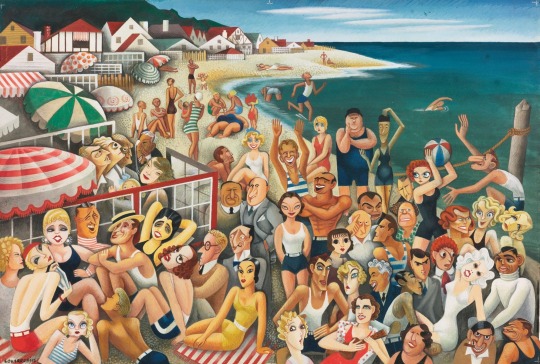
Miguel Covarrubias “Hollywood's Malibu Beach Scene” Source
“Mid-left is John, Ethel and Lionel Barrymore are sitting with George Arliss and Helen Hayes who is holding a baby. Below left are Miriam Hopkins, Lilyan Tashman, Mae West, Edmund Lowe, Constance Bennett, Joel McCrea, Maurice Chevalier, Kay Francis with hands behind her head, Joan Crawford, and Leslie Howard. In the middle, Dolores Del Rio, Adolphe Menjou, Joseph Schenck, Samuel Goldwyn, Joan Blondell, Douglas Fairbanks Jr. with his arms up, Sylvia Sydney, Mary Pickford, Gary Cooper, and Douglas Fairbanks. On the right, Laurel and Hardy, Edward G. Robinson, Cecil B. Demille, Claudette Colbert, Marion Davies, Norma Shearer, Charlie Chapman, Fredric March, Marie Dressler, Gene Fowler, Nancy Carroll holding a beach ball, Howard Hughes, George Raft, Louella Parsons, Harpo Marx, Katharine Hepburn, Jean Harlow, Marlene Dietrich, Schnozzle Durante with his hands up, Greta Garbo, Clark Gable, Ernst Lubitsch, and Wallace Beery.”
11 notes
·
View notes
Text
Why did the chicken cross the road?
Plato: To get to the essence of good
Marx: It was historically inevitable
Machiavelli: To instill fear in other chickens
Nietzsche: On the assertion of its will to power
Sartre: The chicken was ordered to cross the road
De Beauvoir: One is not born chicken, one becomes
Samuel Beckett: Because he was tired of waiting
Aristotle: To stop being in power, but in act
Camus: To challenge the absurdity of the world
Darwin: Because the chicken in the evolution of species, has become an animal crossing
Epicurus: To have fun
Kant: for respect the moral law
Pyrrho: What road ?
Zeno of Elea: To prove that he could never reach the other side
Kierkegaard: In despair of his chicken condition
Shakespeare: That is the question
Stuart Mill: To maximize his pleasure
Galilee: And yet, he crossed
Heidegger: Because the chicken is the shepherd of Being
Descartes: I cross, therefore I am
Hegel: To realize the reason in history
Spinoza: The chicken thinks he has freely crossed the road, but it ignores the causes he did so through
Rousseau: Because the chicken is good by nature
Pascal: Because the chicken is a thinking reed
Heraclitus: The chicken crossed because we never cross the same road twice
Hume: For me the chicken is a fictional idea
Husserl: It is the constitution of the ego that epoche, a mutation ego-ego notwithstanding the noetic-noematic component which is the origin of the object “road” for the subject “chicken”.
Mitterrand: The Road, it’s war
Confucius: Act against chicken as you would have them do unto you
Freud: The road is very clearly a phallic symbol, the fact of the cross reveals a profound liberation of the instincts (or that) chicken.
Leibniz: To maintain the universal harmony of the world.
Voltaire: To reduce intolerance
Aristotle: Because the chicken is a political animal
20 notes
·
View notes
Text

episode one hundred fifty eight - bush near the beach
xxxx touch touch publishing presents tapecase radio. featuring sound and music by rhan small ernst
xxxx
the artist, xtevion, performs all scripted material, show announcements, and station ids.
chopped source sound from: Ninye Din Dit An Impossible Interview with Samuel Beckett Hegel & Marx - Bryan Magee & Peter Singer Samuel Beckett The Kindest Man in the World Samuel Beckett Interview 1987 The New School Arts Festival Conversation with Frances McDormand The Shadow - Carl Jung's Warning to The World
3 notes
·
View notes